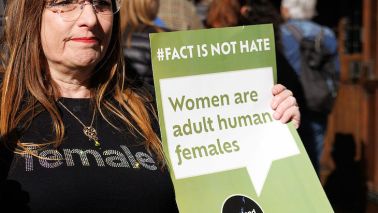Irving Kristol didn’t coin the term ‘neoconservative’ but he was the first person to run with it. Although it was originally intended as an insult towards those alleged to have abandoned their initial ‘liberalism’, Kristol wasn’t bothered with quibbling. ‘It usually makes no sense… to argue over nomenclature,’ he once said. ‘If you can, you take what people call you and run with it.’ Besides, ‘having been named Irving, I am relatively indifferent to baptismal caprice’.
Some of the best qualities of Kristol — who died last week — can be gleaned from such casual phrases. His lightness of spirit, his acceptance that there are things you can do nothing about, and his keenness to sweep aside the peripheral and get on to the important things.
With his 70-year marriage to the historian Gertrude Himmelfarb, and via their son William Kristol, he was, like other first-generation neoconservatives, the father of a neoconservative dynasty. But pre-eminent among a generation of extraordinary thinkers, he radiated the good-humoured and benign qualities expected of a godfather. Generous and encouraging, he was also assiduous in helping generations of thinkers with whom he sympathised.
Born in Brooklyn in 1920, the son of a rag-trader, Kristol made his own way through the American century. In New York he tried out Marxism and then Trotskyism. After serving as a staff sergeant in the armoured infantry during the second world war, he took up the post of managing editor at Commentary magazine. From there he began his career at the heart of American intellectual life at magazines including Encounter, The Public Interest (which he founded) and The National Interest, a career which would last more than half a century. He also began his own political journey.
Witnessing postwar America slipping into moral relativism, and the failure of the country’s institutions to stand against those who wished to destroy them, he certainly migrated — although he disputed whether it was him or the world around him that had moved.








Comments
Join the debate for just £1 a month
Be part of the conversation with other Spectator readers by getting your first three months for £3.
UNLOCK ACCESS Just £1 a monthAlready a subscriber? Log in